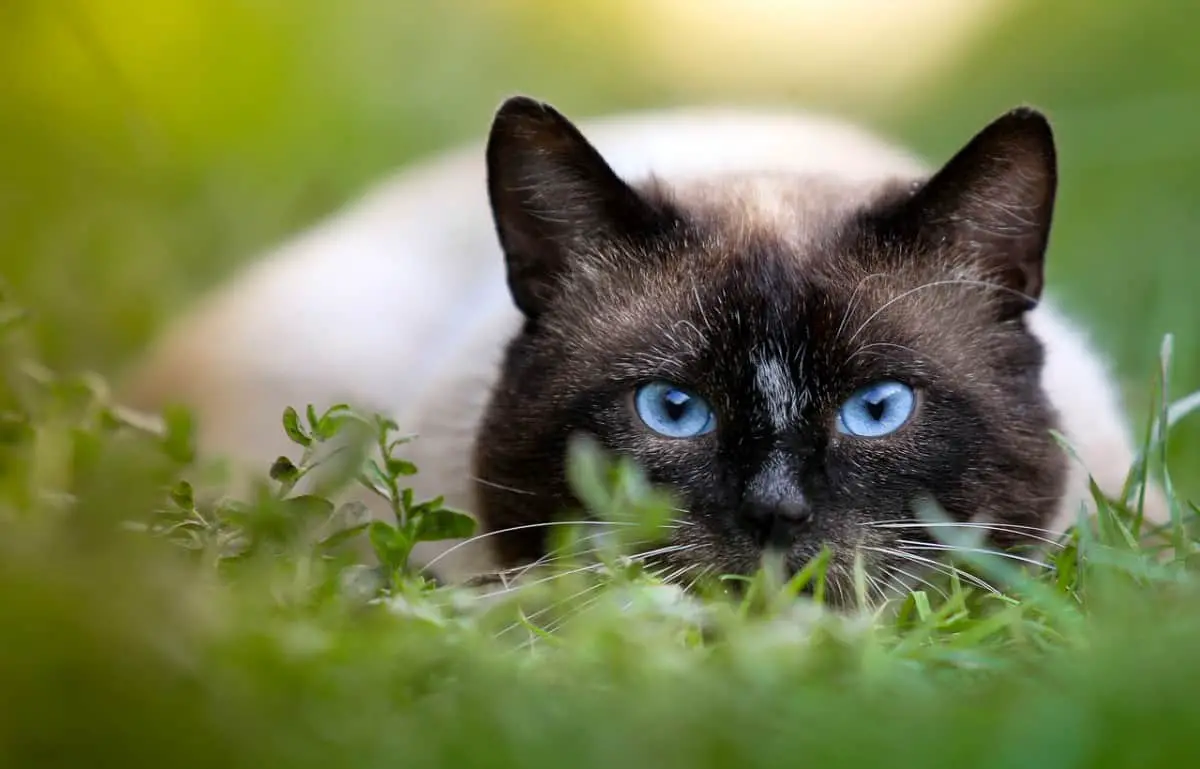Cats are great pets to have as we all know, but they can certainly be a little too rambunctious at times. If your cat is the type who enjoys doing their business in your garden, or if you have another cat in your neighborhood that keeps making a mess there, you may be in need of some kind of deterrent to stop them from doing so.
Jeyes Fluid is a solid option for a cat deterrent that you might consider using. It works because of its strong chemical smell which cats find particularly unpleasant.
In this article, we’ll be sharing with you everything you need to know about Jeyes Fluid and using it as a cat deterrent, as well as other ways to keep cats out of your garden that you may want to know.
What Is Jeyes Fluid?
Jeyes Fluid is a brand of cleaner intended for outdoor use. It’s meant to be used to clean stuff like garbage bins, patios, and front walkways. Because of its powerful smell, it’s also sometimes used as a deterrent for cats and other wildlife that people want to keep out of their gardens.
The recipe for Jeyes Fluid has changed over the years, and the Jeyes Fluid that was the most common a couple of decades ago isn’t the same as the one being sold today. The version of Jeyes Fluid that is apparently the best at deterring cats is the old, brown Jeyes fluid, which had a creosote smell due to being made with coal tar derivatives.
Some places apparently do still stock the original Jeyes Fluid, however, but it’s a lot harder to find these days. It’s worth noting that the original Jeyes Fluid is known to contain carcinogenic ingredients, which is one of the reasons why the manufacturer sells a new version these days.
Is Jeyes Fluid Safe For Cats?
The short answer is, no. The long answer is, not really, but if you use it correctly then there’s a fairly low risk that any cats that attempt to enter your garden will be harmed in any way.
Jeyes Fluid, being a powerful outdoor cleaner, is indeed toxic to cats, especially in its undiluted form. We’ll get into this more in a bit, but it can’t be overstated how important it is to dilute your Jeyes Fluid first before using it as an animal deterrent.
However, because of the cat that Jeyes Fluid smells so bad to cats, it’s less likely that they’ll try and ingest something coated in the fluid, meaning they’re generally less likely to be exposed to a fatal concentration of this substance.
Nonetheless, because of the potential danger, it can present to animals, you should use Jeyes Fluid as sparingly as possible and refrain from using it if your garden gets a lot of traffic from cats or other wildlife.
How to Use Jeyes Fluid as a Deterrent
When using Jeyes Fluid as a deterrent, it’s important to use the correct method. This will not only make the fluid more effective, but it will minimize the risk it poses to cats that try and enter your garden.
- Pour a small amount of Jeyes Fluid into a bowl, and dilute it as per the instructions on the container.
- Take a few tea bags and let them soak in the diluted Jeyes Solution for a few minutes.
- Once the tea bags are soaked, scatter them throughout your garden. If you find that cats who enter your garden prefer to do their business in a certain spot, try concentrating the tea bags around that area.
Alternative Cat Deterrents
Realistically, Jeyes Fluid is far from the best way possible to prevent cats from getting into your garden. It may be effective at keeping them out, but the fact that it’s so dangerous to cats and other wildlife means that there’s a fair amount of risk in using it for this purpose.
However, if you’re looking for a safer alternative to use as a cat deterrent for your garden, you have plenty of solid options. Let’s go over some of the other deterrents you might consider if you’re not keen on using Jeyes Fluid.
Cats can often be deterred by smells that they find unpleasant. Luckily, there are lots of things that smell particularly bad to cats. Cats dislike the smell of lavender, lemon thyme, Coleus Canina, and rue, so consider planting some of these plants in your garden as a natural deterrent.
Other smells that cats don’t like include citrus, so try throwing some orange or lemon peels into your garden and see if that does the trick. You can also try sprinkling a few brewed coffee grounds around your garden, as they don’t like that smell either.
Cats prefer walking on loose, soft soil, so you can try changing the texture of your garden’s soil and see if that works. Covering your garden with twigs or pine cones might make your garden a little too prickly to walk on for a cat’s taste.
There are also plenty of pre-made cat repellants you can buy, most of which are designed to mimic the smell of a larger predator’s urine. These repellants are generally advertised as being non-toxic for plants and animals, making them a much better alternative than Jeyes Fluid in terms of safety.
[su_box title=”Affiliate Disclosure”]This website is supported by its readers. Please assume that all links are affiliate links. If you make a purchase from one of the links we will make a commission from Amazon. Thank you.[/su_box]




